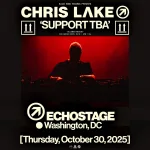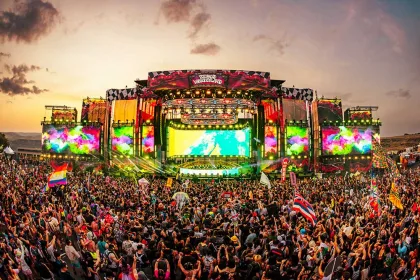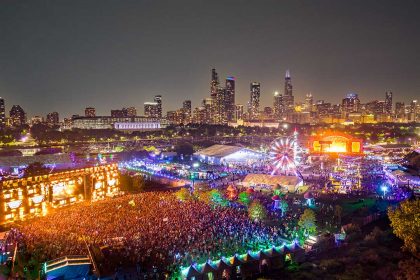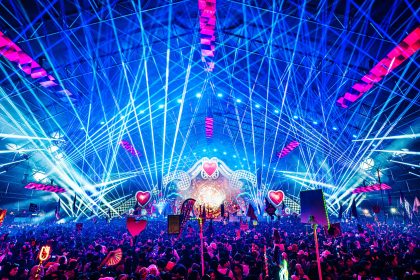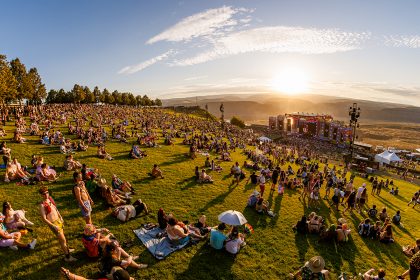Chris Lake on the SoCal Scene, Social Media and Skrillex
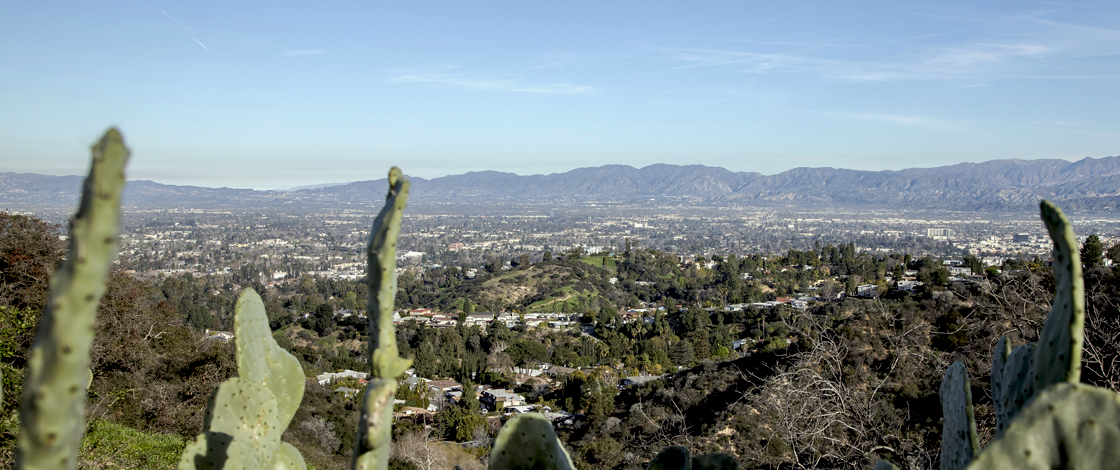
Upcoming Event
You can tell a lot about an artist by the time of day they want to do an interview. The most hardcore night owls arrange to meet over drinks in the green room at the club. Others suggest an inevitably groggy early afternoon phone interview done while en route to the airport. Chris Lake requests to meet at 9am, an hour largely unheard of in the world of nightlife. He wants to go hiking.
“America’s like a big social experiment, and everyone wants to make things happen… It’s as simple as that.”
So, on this relentlessly bright Tuesday morning in Los Angeles, Lake pulls up to the trailhead on Mulholland Drive in his black Tesla and gets out, sporting athletic gear and a smile. The venerable house producer lives just down the hill from this state park; we can literally see his house from the trail. He comes up here often, having embraced the yoga-doing, green-juice-consuming SoCal lifestyle since moving here from London. He wakes up every morning at 6am (without an alarm clock, he notes) and gets outside to soak up the sunshine that largely eluded him back in his native UK.
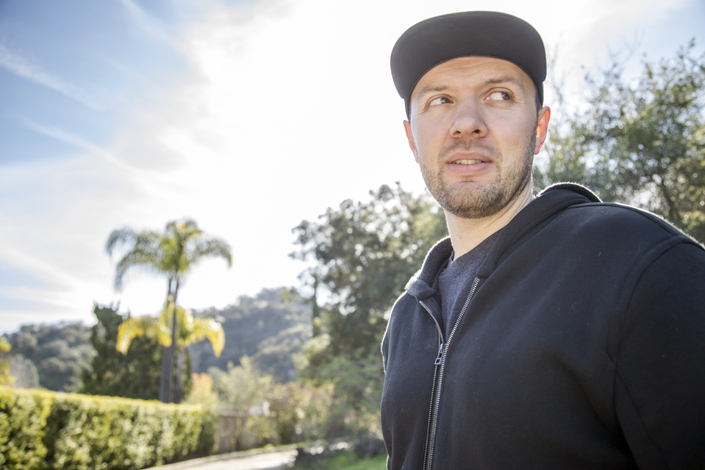
It’s not just Lake’s fitness routine that has been transformed by the move to America. He’s found that the unabashed enthusiasm of the American scene has seeped into his sonic output, resulting in music that incorporates the best aspects of the underground and commercial—realms in which he is equally adept. In his more than 10-year career, Lake has collaborated with North American–made megastars including deadmau5, Steve Aoki and Skrillex, who will release Lake’s forthcoming single, “—-,” on his OWSLA label. Lake’s dizzily pulverizing house track “Operator” has also become a major dancefloor weapon since its release last December, bringing him a new level of ubiquity in the L.A. scene.
These tracks are two of the many gems contained in Lake’s Beyond SoCal mix, which comes ahead of his set at the festival, happening March 24–25 at the NOS Events Center in San Bernardino. Hear the mix and read Lake’s thoughts on SoCal, social media and Skrillex below.
You and your wife moved from London to L.A. five years ago. Has being here put you in a different headspace?
One of the things we always loved in America—and in particular in L.A.—is that there’s very much a glass-half-full attitude. Anything’s achievable. That’s a nice feeling as an artist. I’ve been involved in the European scene for a long time, and as much as I love many of the aspects of the European scene, it’s quite miserable at times. There’s quite a lot of analysis of music. People love music and take it very seriously, but sometimes it’s analyzed a little bit to death, and it can be soul-destroying when you feel you’re under that kind of microscope—especially when the music essentially is made to have a good time to.
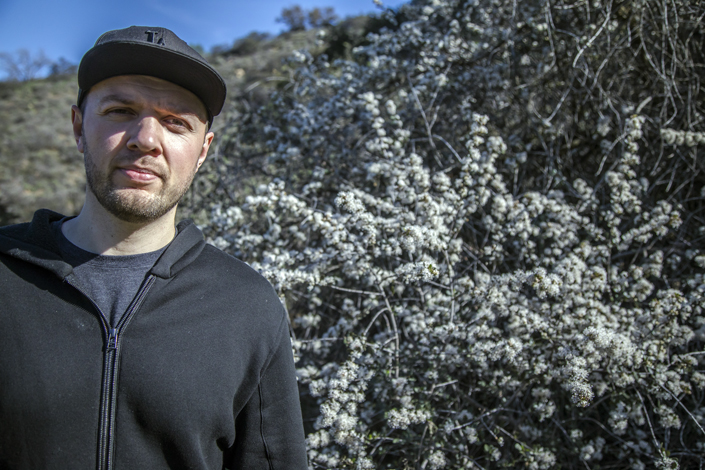
Like something that’s meant to be joyful and physical becomes over-intellectualized?
Yeah, and it feels like you can go a little bit too far and kind of miss the point. What I liked about the American scene is that it didn’t feel that it was based upon that. It felt that it was much more based around having a good time. Not that the European scene isn’t based around having a good time—of course it is—it’s just that there’s that element that made me feel like I was second-guessing things more than I should be.
“I love the fact that people are so into the music. I love the setup in America. I love the fact that it’s evolving.”
What do you attribute that to with Americans?
America’s like a big social experiment, and everyone wants to make things happen and try and do things bigger, better and bolder than everyone else. I feel people have the attitude to want to make shit happen. It’s as simple as that.
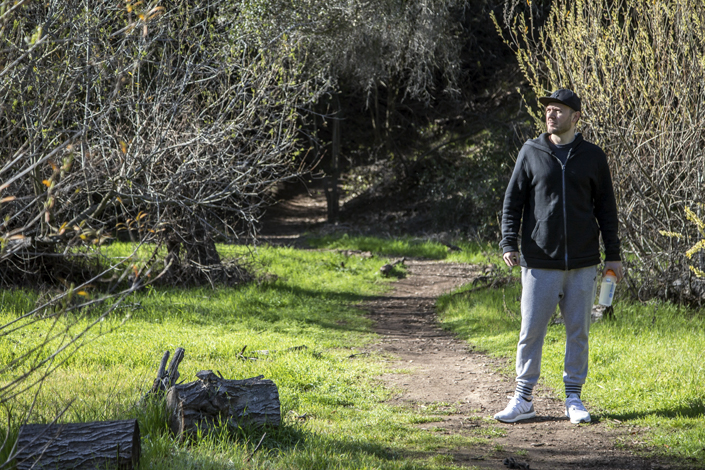
You’ve been making music and touring as a DJ for more than 10 years; have the demands gotten greater?
Yes.
For everybody, or just because you’re successful?
I think for everyone. We’re in a culture now where we all expect that we can get everything immediately. Like, “How do I turn my oven on? I’ll google it.” “I wonder what Kings of Leon are up to. Google it.” We have immediate access to information now. If we have an idea about an artist that pops into our head, we all expect to be able to find within two or three clicks. I think there is a lot of expectation to always be renewing everything—the music that’s there to be heard, the social media aspect.
Yeah, it seems terribly invasive for people in the public eye. You’re expected to sacrifice your privacy for “success” on the internet or Instagram, and you need to feed those platforms to help market yourself and create your success. Even people who aren’t famous feel that pressure, so I’m sure it’s magnified many times over for you when your career depends on that type of interaction.
Yeah, it’s strange. The way I’ve tried to compensate is, I really do try extra hard to make my music stand out above everyone else’s, and that’s my way to compensate for my shortcomings in social media and feeling that the way I want to share myself personally with everyone isn’t quite in line with what people have been expecting [during the last few years]. I think it’s starting to change a bit—mostly because we’re reaching critical mass, and everyone is getting sick of seeing so much candid information about everyone. Who knows? It’s very easy to overthink this stuff.
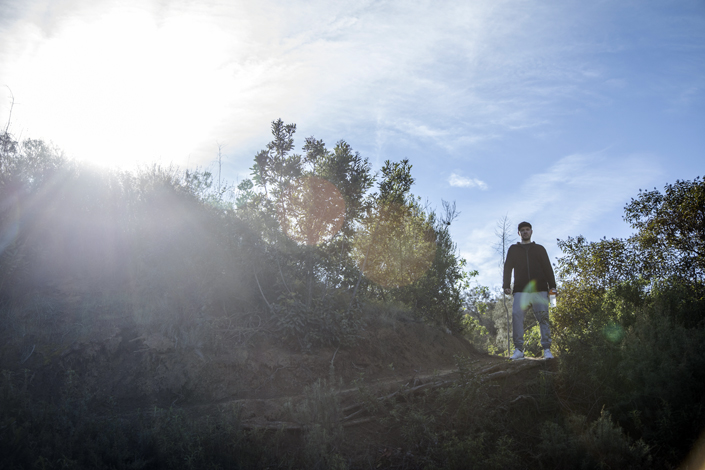
Well, it’s become such a facet of our lives and careers.
That’s the thing—what everyone’s got to remember is that this is all very new. Twenty years ago, if you had a mobile phone, it would be a Nokia and the most advanced feature on it would be Snake. You didn’t really have the ability to check information all the time. It’s unbelievable to think what’s changed in such a short space of time. You can’t just assume that what we’re doing is right. There is the ability to over-share.
Definitely, and like you said, a lot of people are now drawing back and observing their social media habits because so many of us became invested in these platforms without totally realizing what it was doing to our neurochemistry and habits.
That’s humanity. We take something, and we absolutely push it to the max. Then we realize, “Fuck, we’ve hit the breaking point; we’re done. Let’s pull back a bit, and that will be our happy medium.” We just had it with oil. You can find examples everywhere of how humanity went too far, and then we pulled back, and now we’re quite happy.
Like you said, in the grand span of humanity, social media has been around for about a second. We’re evolving very quickly.
I think we’re all trying to find a happy medium. At least, that’s what I’m going through.
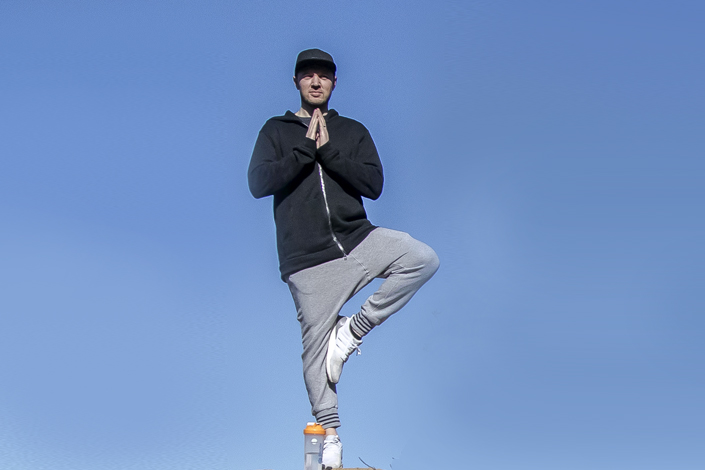
You mentioned you found a really genuine kind of enthusiasm here in the American scene. Has that seeped into what you do?
I love the fact that people are so into the music. It keeps me going. I feed off the energy that people give to me, so if people are excited about the music, it’s exciting to me. That doesn’t bypass me at all. I love the setup in America. I love the fact that it’s evolving. Even though it all started here, it doesn’t really feel like it. It feels like it’s part of the legacy, but house music having been born in America doesn’t feel like it defines the scene.
Yeah, there’s very much a generational divide, where you have people who have been around since the beginning, and then you have this legion of 23-year-olds who might not know as much about the history, but they know what’s happening now and that it’s a fresh, revolutionary thing. You arrived here in the midst of that surge.
Yeah, I remember the first ever show I did in America was in Vegas, and it was a 300-capacity room at the MGM. It was fucking shit. I played there a couple of times. The first time I played, the opener DJ wasn’t even a DJ; it was a fashion show. There wasn’t enough focus on the music at the time. Basically, the culture was green. People were not used to dance music. This was 2006. It wasn’t dance music or EDM; people referred to it all as “techno.” It was back at that time where it was still fresh in the memory of clubs and night culture being shut down in America and all of the association with drugs. It was a much different perception. Thinking about it that way, that’s probably why the term “EDM” helped quite a lot—because it put a different skin on the exact same thing for the rest of America to understand it in a different light.
“There were too many artists turning up with exactly the same thing—super uncreative, super uninspiring. In all honesty, it was just a massive money grab.”
It’s been nice being involved in the American scene. I love it. I love the people. I feel as if I can turn up to a show and I can play what I want, and I can be varied in the music that I play and not really be judged for it. People will embrace it and enjoy it, and that’s really, really good.
Is that partially due to people here having less of an understanding of the history—versus, like you said, in the UK, where it’s more informed and intellectualized?
I think so. That’s actually what I like. I like that people are judging things on the music more than on how they analyze and interpret the music. I just feel that generally, people are open a bit more. That’s a very sweeping statement. There are some fantastic parts about the European scene; it’s just focusing on the positives in America in comparison.
What are you working on now?
I just got my rights back to my music. I’m not in any long-term deal. I’m releasing my own stuff now.
Was getting those rights back a struggle for you?
[Laughs] Yep. So, I can now decide what happens with my music and get it out to people in the way I’d like to do it, without outside interference, which is nice. The first record I did was “Operator,” which has done really well so far. I was just on Holy Ship, and my record by far was the most-played record on the ship. It literally was the anthem. It’s taken on its own little life and culture. People are meme-ing it, and the lyrics have really caught on with people. It’s nice to be involved in a record like that. We’re going to try and push that to a bigger audience in the next couple months. I’ve got a record coming out on OWSLA with Sonny. He heard the record and loved it and asked to sign it. What a fantastic guy he is. He does so much for the scene. I’ve got so much respect for his positivity and creativity.
That’s true. He’s one of those people I’ve never heard anyone say a bad word about—except people who are hating on him because they’re jealous or whatever.
The only one who said anything was deadmau5.
Whom you’ve worked with!
I found him! I signed him. I got him his management deal. I was actually sent a vinyl that he’d made under the name BSOD, because my friend was doing distribution in the UK of this project. I heard it and freaked out. I was like, “Holy shit. This is amazing.” I found out it was Joel and Steve Duda, the creator of Serum. I linked with both of them, and Joel was sending me loads of music. At the time, I was doing a tour in Australia. Bear in mind that social media was much more rudimentary back then; it was around 2006.
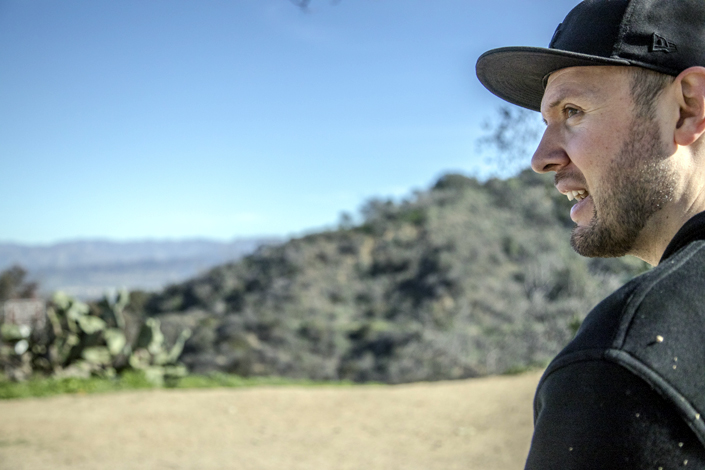
So, what was your system for sending files back and forth?
He was sending me records, and of course with the time change, night in Canada was day in Australia. He’d send me a record, finish it at night, go to bed, and I’d play the record at a festival, film it, send the video back to him. He was so happy.
It wasn’t just his music that I was attracted to. When I checked his MySpace, he was the first person I saw who was making custom MySpace skins. He figured out a way to hack it, and he could completely change the whole way that your MySpace page looked. His stuff looked so futuristic and cool. I was like, “Fuck, I need to get one of these.” That was one of the main reasons I started talking to him, and then I realized the music was fucking awesome. I ended up going over and working with him for two weeks. I convinced Joel—when there were a lot of people clamoring around him trying to pick him up for management—that he should go with my manager Dean. At the same time, I was calling Dean, saying, “I found this kid. Get it right with him, and it’ll make you millions.” I had to convince him. It worked out really fucking well for both of them. That’s how it all went down. He’s really, really talented.
You’ve worked with Skrillex; you’re worked with Aoki; you’ve worked with deadmau5. These are such larger-than-life characters. In some cases, they actually are cartoons.
Yeah, those three examples, definitely—you could outline their shadows and know who they are.
Do you think that’s a specific quirk of the American scene? I guess Joel’s Canadian, but like you said, you get these characters.
I don’t think that’s just an American thing. That’s just catching the attention of the public in the easiest possible way. It’s branding. But it’s not like Joel made a logo and suddenly he was famous. It’s definitely a symbol of the work.
Have you noticed changes in the American scene during the five years you’ve lived here?
The past couple of years, [artists have put] a bit more of a focus on the musical curation of what they’re doing, rather than the overall entertainment of what they’re doing, which I think is very cool. When you have companies like Insomniac that are in such powerful positions to influence the scene, it really helps when you’ve got them on board, wanting to actually move the culture forward with the music. That’s a good thing to have. There are definitely a lot of people who don’t always look at the grander scheme of things and the grander health of the industry.
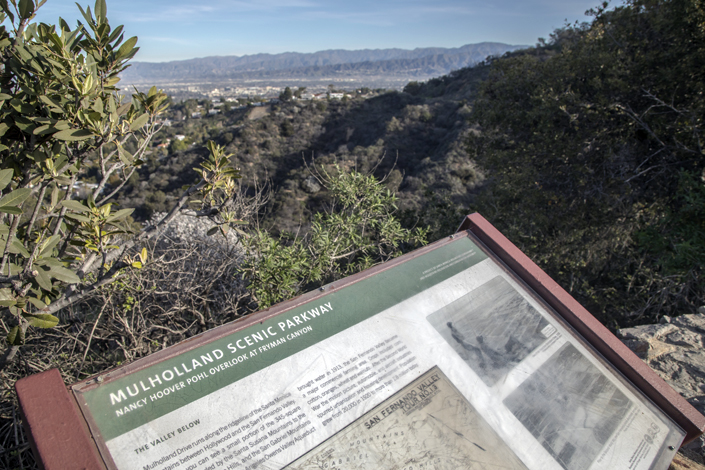
I think the scene started demanding a greater focus on the music as well.
There were too many artists turning up with exactly the same thing—super uncreative, super uninspiring. In all honesty, it was just a massive money grab.
What niche do you fill?
I do think I stand by myself. I’ve got a huge appreciation of the underground scene, but that appreciation is a bit more innocent. I’ve never been a big party guy—I’ve never done drugs—but I really do love the music. At the same time, I can appreciate a big hit and the more commercial side of things. I sit right in the middle. It’s quite a difficult place to sit in, actually.
How so?
Sitting in the middle means I’m not desperate for validation from the underground world. I’m not desperate to be a big commercial success. I just make whatever I want and see where it gravitates.
That’s a powerful position to be in.
I’m proud of it.
Catch Chris Lake doing his thing at Beyond Wonderland SoCal on Saturday, March 25.
Follow Chris Lake on Facebook | Twitter | Instagram

